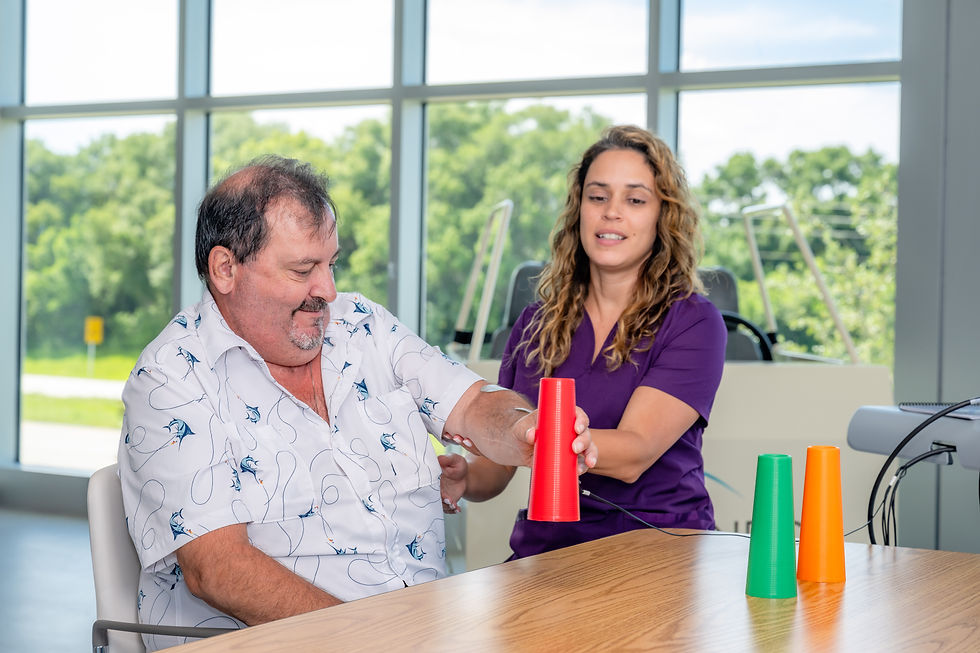Unlocking Hope: How Rehabilitation Can Help with Parkinson’s
- Milwaukee Rehab
- Mar 6, 2024
- 2 min read
Updated: Apr 29, 2024

If you’ve recently been diagnosed with Parkinson’s disease or have had a significant decline from a previous diagnosis of Parkinson’s, you’re not alone. There are many emotions you may be feeling: shock, anger, or even fear. Whatever you’re feeling, there is a path forward, and incorporating medical rehabilitation into your healthcare plan can help improve your quality of life.
According to the Parkinson’s Foundation, nearly 90,000 Americans are diagnosed with the disease every year, and it is predicted that there will be 1.2 million people living with Parkinson’s disease in the U.S. by 2030.1 The primary risk factor for Parkinson’s is age; diagnoses increase after age 65.
Although there is no cure for Parkinson’s disease, rehabilitation therapy is one of many treatments that can help people maintain or improve their lives. Even though there is evidence that rehabilitation therapy can help in living with Parkinson’s, only 14% of people living with the disease use rehab therapy as part of their treatment plan.2 At Milwaukee Rehabilitation Hospital, our dedicated team of physical, speech and occupational therapists can help you with physical function, activities of daily living and communication. Medical rehabilitation for Parkinson’s can help2:
· Slow disease progression
· Address movement symptoms
· Improve daily functioning
· Enhance mood and mental health
Different Types of Parkinson’s Rehab
Our dedicated team of therapists will design a plan of care that meets your unique goals and addresses your specific symptoms.
Physical Therapy – Helps keep you moving as well as possible for as long as possible. This can include strength training, gait training and balance training.
Occupational Therapy – Helps you remain independent and maintain the ability to participate in activities you love.
Speech Therapy – Helps with communication, swallowing and memory skills.
Consider Milwaukee Rehabilitation Hospital. Learn more about medical rehab our website. We are here to help!











